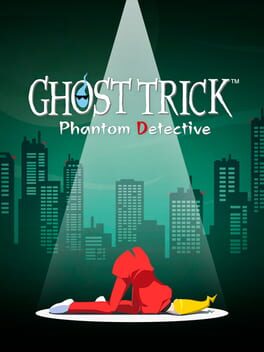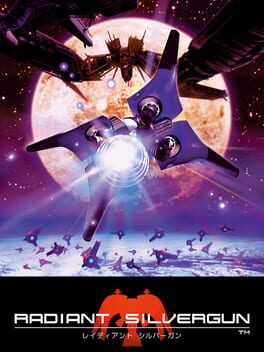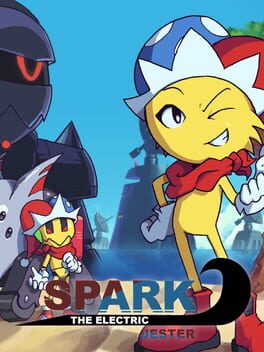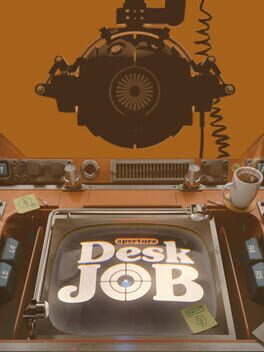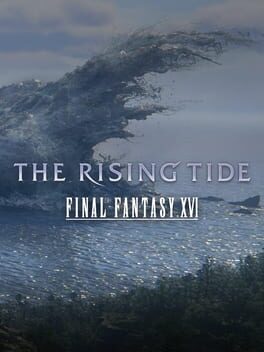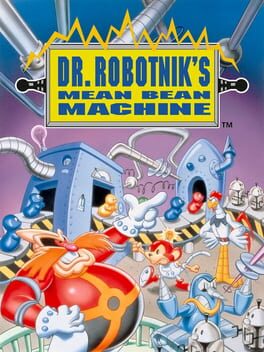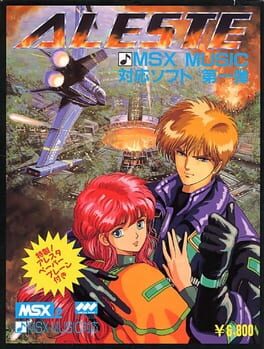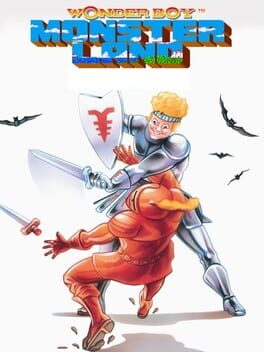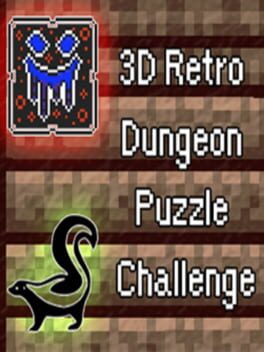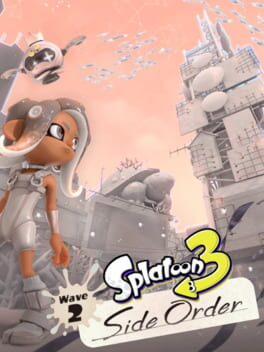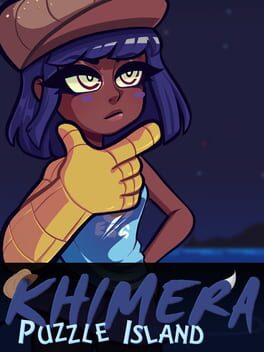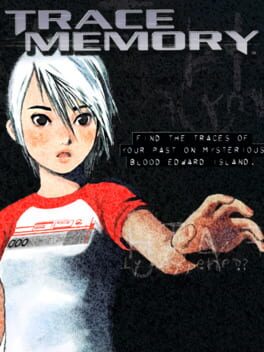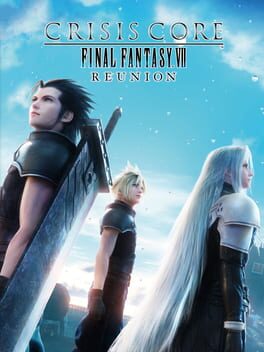RankNegativeOne
Fantastic game, highly recommended. This version has some visual shortcomings (layering issues, more obvious model mirroring than the original), and the "bonus puzzles" aren't very good (one would hope they'd be additional Ghost Trick levels, instead of unrelated slide puzzles - but at least I got really good at slide puzzles), but it's still Ghost Trick, and the arranged soundtrack and new controls function well enough.
2011
I feel unqualified to review this game, so I won't contribute a star rating. A lot of it seems great in concept, like the combo and level up system, but they feel like elements that only can really shine if you dedicate yourself to learning, solving, and memorizing the ideal patterns of enemies to kill. Otherwise, it seems like your weapons would be severely underpowered for the rest of the game. With the story mode and save file features, it transparently feels like the player can elect to replace that skill barrier with raw persistence. Even with that handicap, I could only eke out a victory on all six stages after maxing out all my weapons AND bumping the difficulty down to easy.
The story. Uh. Between the compounding obfuscation of cultural differences, nonlinear storytelling, sci-fi philosophy, and a terrible translation, I don't think there's enough left comprehensible enough for me to give an opinion on. Remarkably bleak for both the gameplay and aesthetic genre used.
The story. Uh. Between the compounding obfuscation of cultural differences, nonlinear storytelling, sci-fi philosophy, and a terrible translation, I don't think there's enough left comprehensible enough for me to give an opinion on. Remarkably bleak for both the gameplay and aesthetic genre used.
Currently very broken on PC, between the pause button crashing the game to utterly terrible framerates and regular slowdown. I feel like it wasn't that bad when I started playing the game, but that was like a year ago, which itself speaks to how the game itself didn't really grab me. The level design feels sprawling, but never particularly rewarding or engaging to explore, as you're usually rewarded with only a few mediocre health pickups, or a power-up that you probably already have a copy of from earlier in the level.
2022
A nice bonus chapter, sort of a microcosm of the main game in a way, complete with side quests that range from trivial to a somewhat involved set of fights and somewhat endearing side characters. I liked the sub-plot in Mysidia, and the new powers you get from the DLC are a welcome addition that I can picture making good use of in the other optional content the DLC provides, or a second playthrough on NG+.
When the developers said that the DLC would not change the ending of the game, they meant it. It was not a ruse or a long con, the ending is unchanged.
It's more FFXVI; if you liked or did not like the base game, I don't think this is going to change your mind about it.
When the developers said that the DLC would not change the ending of the game, they meant it. It was not a ruse or a long con, the ending is unchanged.
It's more FFXVI; if you liked or did not like the base game, I don't think this is going to change your mind about it.
Had me in a vice grip throughout. Felt compelled to chase down nearly every sidequest that didn't seem like it was meant to be post-game content. The combat system is improved in some pretty substantial ways from the previous entry, though it takes a while to figure out a build and gameplan that properly takes advantage of those changes. Some of the minigames feel tuned to be a bit too hard, and then open up to unlock an even harder mode, but that's not entirely a negative, just something to be aware of: yes, other people did find that one minigame to be really hard. A lot of the later bosses had me thinking out loud through different game plans to take them out or mitigate the damage from their attacks, something which is (in my book, at least) a sign of a pretty good "party-build-centric" RPG.
As far as the story goes, I enjoyed the ride, but I can't say I'm totally certain I understood everything that happend. Taking a month and a half to beat the game, with long stretches of sidequesting in between major story beats probably didn't help. My judgement on the story of the remake trilogy might have to remain reserved until I see if the conclusion sticks the landing.
As far as the story goes, I enjoyed the ride, but I can't say I'm totally certain I understood everything that happend. Taking a month and a half to beat the game, with long stretches of sidequesting in between major story beats probably didn't help. My judgement on the story of the remake trilogy might have to remain reserved until I see if the conclusion sticks the landing.
1988
Played the MSX version this time. Despite actually having an opening cutscene and even an additional level, I think I altogether prefer the SMS version. The screen is larger/sprites are smaller on the MSX version, so enemies more easily build up in large numbers (something that the persistent sprite flickering and slowdown suggest is beyond the prudent limits of the system). Enemy patterns also feel more repetitive, particularly in the level missing from the SMS version (I think) and particularly with an enemy that spirals vaguely towards your ship, which takes far too many bullets to kill for the high numbers it spawns in with.
While I can get how appealing it may be given how different it was from mamy of its arcade contemporaries, the game feels like it's only ever trying to deceive you, whether it be through nonsensical hitboxes or esoteric secrets. Feels like something you bang your head against until you break through, rather than something you understand and learn to master.
It's a good twist on Splatoon 3 gameplay, with enough variety in levels and upgrades to give it a decent amount of playtime. So far though, I sort of dislike how much it seems to lean on meta-progression between runs, giving it that feeling of "you can win without much skill just by persisting and dying enough times to make the game eventually hand you a victory". And given the quirks of Splatoon gameplay, namely that enemy attacks also can restrict your mobility, so a single mistake can cut off your escape and lead to a cascade of failure, it becomes very necessary to lower the difficulty as soon as you can.
Still, it feels worth the asking price, and injects a cool new mode into the game.
Still, it feels worth the asking price, and injects a cool new mode into the game.
After playing the prior Khimera game a few years back, I told myself that it was good enough for a free game that I'd be down for whatever the developers did next. It's a good thing I like picross!
Altogether a decent picross implementation, but there are a few minor issues. Surrounding a group of filled-in boxes with "no" marks will at times tell you which number that group corresponds to, even if you haven't filled in enough boxes in that row or column to actually prove that you know that it corresponds to that number for sure; other versions of picross, like any nintendo version, would not give you this information. This makes it kind of a lot easier than any version I've played before, even without using any assist items (which, given the achievement and incentive structures, feel like they're meant for the Mosaic side mode instead of the "critical path").
"Pacing" also feels like an issue. With few exceptions, the sets of levels generally increase the size of the puzzles you have to solve as you progress. This means that if you progress through the puzzles in the default order, you go from puzzles that take a few seconds at the very beginning of the game, to puzzles that take about 12 minutes each, on the lower end (and I was going pretty fast with them - gold ranks on these late puzzles are something like 20 minutes each). Consequently, the end of the story kind of feels like it drags, just because the puzzles themselves are all substantially longer, with no shorter puzzles to break them up. Not a huge issue, just a thing I noticed.
Altogether a decent picross implementation, but there are a few minor issues. Surrounding a group of filled-in boxes with "no" marks will at times tell you which number that group corresponds to, even if you haven't filled in enough boxes in that row or column to actually prove that you know that it corresponds to that number for sure; other versions of picross, like any nintendo version, would not give you this information. This makes it kind of a lot easier than any version I've played before, even without using any assist items (which, given the achievement and incentive structures, feel like they're meant for the Mosaic side mode instead of the "critical path").
"Pacing" also feels like an issue. With few exceptions, the sets of levels generally increase the size of the puzzles you have to solve as you progress. This means that if you progress through the puzzles in the default order, you go from puzzles that take a few seconds at the very beginning of the game, to puzzles that take about 12 minutes each, on the lower end (and I was going pretty fast with them - gold ranks on these late puzzles are something like 20 minutes each). Consequently, the end of the story kind of feels like it drags, just because the puzzles themselves are all substantially longer, with no shorter puzzles to break them up. Not a huge issue, just a thing I noticed.
2005
Charming in many ways, but it feels like it commits many cardinal sins of the adventure game genre. If you pursue only the most basic ending, most of the puzzles seem fairly straightforward, but there aren't too many, so the game will end fairly quickly. This ending is somewhat unsatisfying though, and leaves critical questions unanswered. The "true ending" path (which isn't that much different in terms of story) requires you to investigate several key points throughout the game, sometimes in a particular order, without much guidance, or feedback letting you know if you've done anything correctly, or if you've missed something and locked yourself out of this ending. After one playthrough, I felt like a guide was required for the subsequent playthrough, to at least point me towards any "missables". Still, it's a neat exhibition of the various features of the DS, and a cool format for an adventure game like this.
Feels like a mixed bag. At the start, I was pretty gung-ho about taking on all the side content it offered, but that faded a few chapters in, and by the last few chapters, I kept telling myself to stick to the critical path.
The plot and all dialogue feel like they've been filtered through so many layers of translation, each line removed from the context of what's happening around it, but the themes have the subtlety of a hammer, so they come across okay anyway, but it's pretty grating along the way. The combat system is fine, I guess. It has the same "problem" as a lot of handheld Kingdom Hearts games (particularly Birth By Sleep and Dream Drop Distance), where the real strategy comes from building out/synthesizing your commends/materia to be broken powerful, and the actual moment-to-moment execution on the battlefield is just a formality. Character growth being so dependent on the luck of the DMW slots feels like it should be frustrating, but my odds always felt pretty decent, such that I never felt underleveled or underpowered.
The overall game structure feels almost too meaty for its own good; there's a ton of side content (to the point of there being TOO many optional missions, especially given how similar they are to each other, and how inconsistent the difficulty ratings seem to be between mission sets), but without a chapter select, so much of it is incredibly easily missed, and the game has both highly-signposted and invisible points of no return (though the invisible one seems like it just locks you out of one questline). You would think a more functional NG+ would have been a priority in the remake/remaster, but apparently not. Still, with the amount of content on offer, I can see why the original makes an appearance on basically every must-play PSP games list.
Despite any negatives, I haven't written off the idea of a second playthrough sometime in the future, and that's got to be some kind of a good sign for it. Worthwhile if you want more of the world and characters of FF7, can appreciate action RPGs that prioritize coming up with a character build over tight execution, and are willing to tolerate some very eccentric and overly-dramatic characters.
The plot and all dialogue feel like they've been filtered through so many layers of translation, each line removed from the context of what's happening around it, but the themes have the subtlety of a hammer, so they come across okay anyway, but it's pretty grating along the way. The combat system is fine, I guess. It has the same "problem" as a lot of handheld Kingdom Hearts games (particularly Birth By Sleep and Dream Drop Distance), where the real strategy comes from building out/synthesizing your commends/materia to be broken powerful, and the actual moment-to-moment execution on the battlefield is just a formality. Character growth being so dependent on the luck of the DMW slots feels like it should be frustrating, but my odds always felt pretty decent, such that I never felt underleveled or underpowered.
The overall game structure feels almost too meaty for its own good; there's a ton of side content (to the point of there being TOO many optional missions, especially given how similar they are to each other, and how inconsistent the difficulty ratings seem to be between mission sets), but without a chapter select, so much of it is incredibly easily missed, and the game has both highly-signposted and invisible points of no return (though the invisible one seems like it just locks you out of one questline). You would think a more functional NG+ would have been a priority in the remake/remaster, but apparently not. Still, with the amount of content on offer, I can see why the original makes an appearance on basically every must-play PSP games list.
Despite any negatives, I haven't written off the idea of a second playthrough sometime in the future, and that's got to be some kind of a good sign for it. Worthwhile if you want more of the world and characters of FF7, can appreciate action RPGs that prioritize coming up with a character build over tight execution, and are willing to tolerate some very eccentric and overly-dramatic characters.
